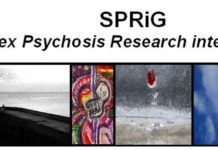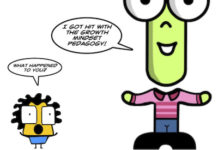AVATAR Therapy Shows Some Positive Outcomes, Now What?
In a commentary piece, Ben Alderson-Day and Nev Jones discuss the AVATAR therapy research for psychosis and propose further questions.
Storytelling Therapy for Trauma and Bullying
A study out of the University of Buffalo explores the use of Narrative Exposure Therapy to treat youth PTSD and substance abuse. “Trauma is...
Study Finds Connection Between Trauma and Psychosis in Children
Researchers connect the impact of early trauma to the development of psychosis in children as young as 7 years old.
Nutrient Supplementation Improves Outcomes for Patients Diagnosed with Schizophrenia
A review article and meta-analysis of 18 articles published in the journal of Psychological Medicine reported effects of vitamin and/or mineral supplements on psychiatric symptoms in people diagnosed with schizophrenia. The study provides evidence of the beneficial effects of taking certain vitamins and minerals for improving symptoms associated with schizophrenia.
Out-of-home Placements for Children Increase Odds of Psychiatric Issues
When controlling for social and family characteristics, separating children from parents into out-of-home care increases psychiatric issues, prescriptions, and criminal activity.
Police Violence Victims at Increased Risk of Psychotic Symptoms
Researchers examine links between police victimization and psychotic symptoms in a topical new study.
Social Recovery Therapy for First Episode Psychosis
Social Recovery Therapy shows promising results for individuals who experience first-episode psychosis.
“The Myth of the Ever-More-Fragile College Student”
“The point, overall, is that given the dizzying array of possible factors at work here, it’s much too pat a story to say that kids are getting more 'fragile' as a result of some cultural bugaboo,” Jesse Singal writes in response to the flurry of recent think pieces decrying the weakened resolve of today's college students.
Large German Anti-Stigma Campaign Shows Little Effect on Attitudes
“Overall, this study showed that the information and awareness campaign had almost no significant effects on the general public's attitudes toward people affected by either schizophrenia or depression,” the researchers, led by German medical sociologist Anna Makowski, wrote. “One could assume that deeply rooted convictions cannot be modified by rather time-limited and general activities targeted at the public.”
Claims That Long-term Antipsychotic Use Leads to Better Outcomes are Misleading, Researchers Argue
Researchers reveal the limitations and misleading interpretations of two recent studies that claim to demonstrate that long-term antipsychotic use leads to better outcomes.
Physical Activity and Exercise May Prevent Depression, Study Finds
Everyday exercise, regardless of intensity, can prevent the development of depressive symptoms.
In Chronic Patients, Antipsychotics Have Limited Efficacy in Reducing Symptoms
A large review and meta-analysis of 167 studies across 60 years dissects placebo-controlled randomized controlled trials of antipsychotic drugs.
Adderall Use Associated with Increased Risk of Psychosis
Twice as many teenagers with ADHD experienced severe psychosis when taking Adderall, as compared to Ritalin, according to a new study.
“Children Today Suffer From a Deficit of Play”
Boston College Psychologist Peter Gray writes for Aeon about the impact of the gradual erosion of children’s’ play in the United States. “Over the...
What Are Best Practices For Psychosis And What Gets In The Way?
Research investigates clinicians’ perspectives on best care practices and the complicated realities of providing care in the face of agency limitations and mechanized interventions.
Researcher Critically Examines Movements for Global Mental Health
China Mills raises concerns that global mental health movements obscure social determinants of health and naturalize Western mental health concepts.
New York Times Issues Correction on RAISE Study Report
Last Tuesday, The New York Times and several other outlets (including Mad In America) reported on the highly-touted results of a study on psychosocial treatment for patients diagnosed with schizophrenia. Now, claims made about the study, which the ‘Times called “the most rigorous trial to date,” are coming under increased scrutiny.
Anti-Stigma Campaigns Enable Inequality, Sociologists Argue
Scholars contend that stigma functions as a mechanism of power in analysis of UK Heads Together mental health campaign.
Childhood Victimization Connected with Experiences of Psychosis
Childhood victimization associated with experiences of psychosis later in life, and in persons without childhood victimization, there is a bidirectional association between psychosis and adult victimization.
“Cortisol Levels in Children’s Hair May Reveal Future Mental Health Risk”
The Guardian covers research out of Australia that found that levels of the “stress hormone” cortisol in the hair of 70 nine-year-old children corresponded to the number of traumatic events experienced by the child. “Childhood is an imperative and sensitive period of development, and when things go wrong it can have lifelong consequences, not just on mental health, but also on general health.”
Madness and the Family, Part III: Practical Methods for Transforming Troubled Family Systems
We are profoundly social beings living not as isolated individuals but as integral members of interdependent social systems—our nuclear family system, and the broader social systems of extended family, peers, our community and the broader society. Therefore, psychosis and other forms of human distress often deemed “mental illness” are best seen not so much as something intrinsically “wrong” or “diseased” within the particular individual who is most exhibiting that distress, but rather as systemic problems that are merely being channeled through this individual.
More Evidence That Physical Activity Prevents Depression
Higher levels of physical activity serve as a protective factor for the future development of depression.
“Antipsychotic Use in Youth Without Psychosis: A Double-edged Sword”
This month’s issue of JAMA Psychiatry ran an editorial commenting on recent research revealing that the majority of youth prescribed antipsychotics have not been diagnosed with a mental disorder.
Are Students Benefiting From the Growth Mindset Model?
Results from two meta-analyses reveal shortcomings with the growth mindset theory as applied in schools.
Safety Analysis Weighs Harms and Benefits of Antipsychotic Drugs
The researchers find that the drug effects for reducing psychosis are small and that treatment failure and severe side effects are common.


























